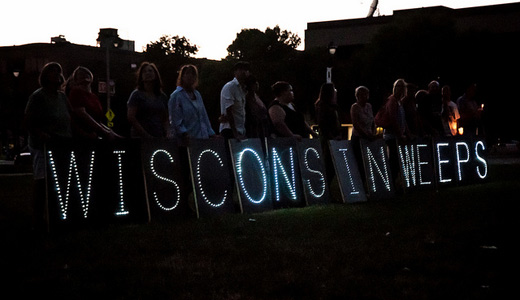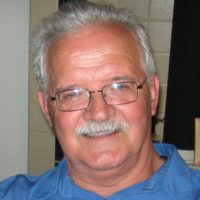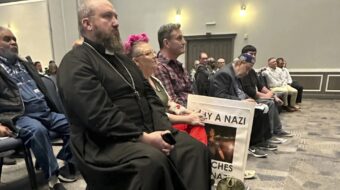
The murder of six people of Sikh faith and the wounding of others at their religious center in Oak Creek, Wisconsin, near Milwaukee, should be strongly condemned by public figures and organizations alike. A cry of indignation and outrage must greet this act of premeditated murder.
A serious national conversation about it is needed. As a nation, we cannot allow this hate crime (or any hate crime) to be swallowed up by the next news cycle and then forgotten. The president should establish a national commission to study hate crimes – what causes them and how to prevent them.
This sort of violence will not go away on its own. Passage of new gun laws is part of the answer. But at the same time deeper changes in public policy and politics are necessary if hates crimes are to be scaled back and eliminated.
The wanton attack on the Sikh community at their house of worship isn’t unique. Indeed, it continues a developing pattern over the decade of hate crimes that have left innocent people dead and wounded as well as the American people uneasy and bewildered.
Contrary to what is suggested in the mass media, these crimes are neither completely inexplicable nor completely random. Nor are they fully explained by the mental instability of the assailant, in this case Wade Michael Page.
The individual’s mental state is a piece of the explanation. But of more importance, in my opinion, is the larger political environment and how it directly and indirectly influences the perpetrators of violent hate crimes.
For the past three decades the toxic venom coming from prominent and not-so-prominent ideologues of the right has overwhelmed the ideas of decency, fairness, democracy, and equality. From legislative halls to religious pulpits, from radio talk shows to television broadcasts, from tea party rallies to national conferences, the hateful rhetoric of the right has created an atmosphere that encourages the formation of violent right-wing fringe groups and sets the stage for acts of violence against innocent people.
White supremacism, Islamophobia, homophobia, misogyny, and xenophobia are at the core of the message of these ideologues of the right. In their worldview, End Times are near, Armageddon is coming, “white Christian” (“Anglo-Saxon”) culture is under assault, “Big Government” is eviscerating the Constitution and the American Way of Life, women are dangerously forsaking their “traditional” role, and people of color and immigrants are overrunning “our land.”
Sounds outlandish, too far out to be believed. Well it is for most people, but there is an audience for this message, nearly exclusively white people, white males in particular, who harbor real and imagined resentments of all kinds, taking them out on invented enemies.
Moreover, the election of the first African American president, and the collapse of the American economy starting just before that, further ratcheted up for some a sense that the world is coming apart, and the rage attached to it.
None of this, it should be said again, happened purely spontaneously. The ideological zealots of the right turned both the election of a black president and the economic crisis into fodder to further spread hate, racism, and scapegoating – an explosive combination in our nation’s history – among the unstable and violence-prone.
Which brings me back to Wade Michael Page. He didn’t appear out of nowhere. He was a neo-Nazi and his decision to pull the trigger that led to the Oak Creek carnage was not his alone. He was in no small part a product of the rhetorically incendiary environment manufactured by right-wing extremist ideologues and their wealthy backers.
Not to take that into account, not to see that phenomenon, is to miss the forest for the trees. It is politically disarming in the face of this outbreak of seemingly random and senseless violence against Sikh Americans. No solution to the increasing horrific incidents of violence in our national life is separable from the struggle to roll back the influence of the right in our national politics, not least in the coming elections.
On a deeper level, the violence against innocent people that we are witnessing today – not to mention the ascendancy of right-wing extremism and the ginning up of anti-human ideologies and practices – is organically embedded in the system of capitalism, U.S. capitalism in particular. Replacing capitalism with a more humane economic system, however, is a task for another day when the necessary social forces are assembled to do so.
For now the immediate task is to defeat the right wing in November, as well as change public policy in a people-before-profits direction and make stopping the killing of innocents an integral part of our national conversation.
Photo: A vigil for the victims of the Sikh temple shooting in Oak Creek, Wisconsin, Aug. 5. ljlandre CC 2.0












Comments